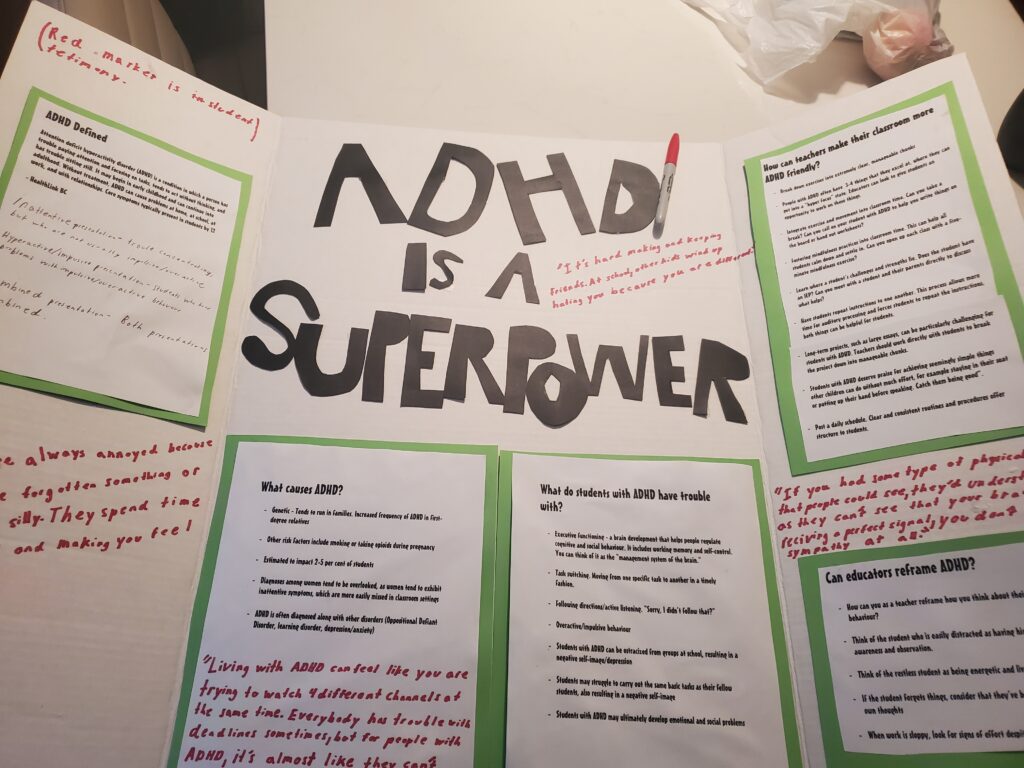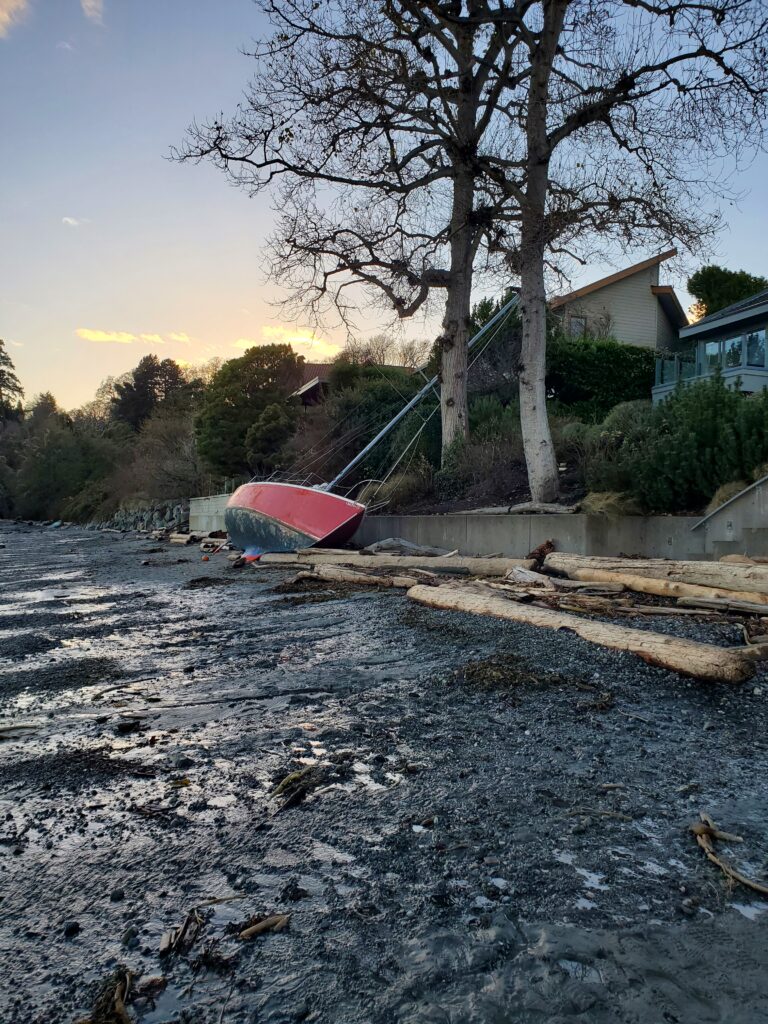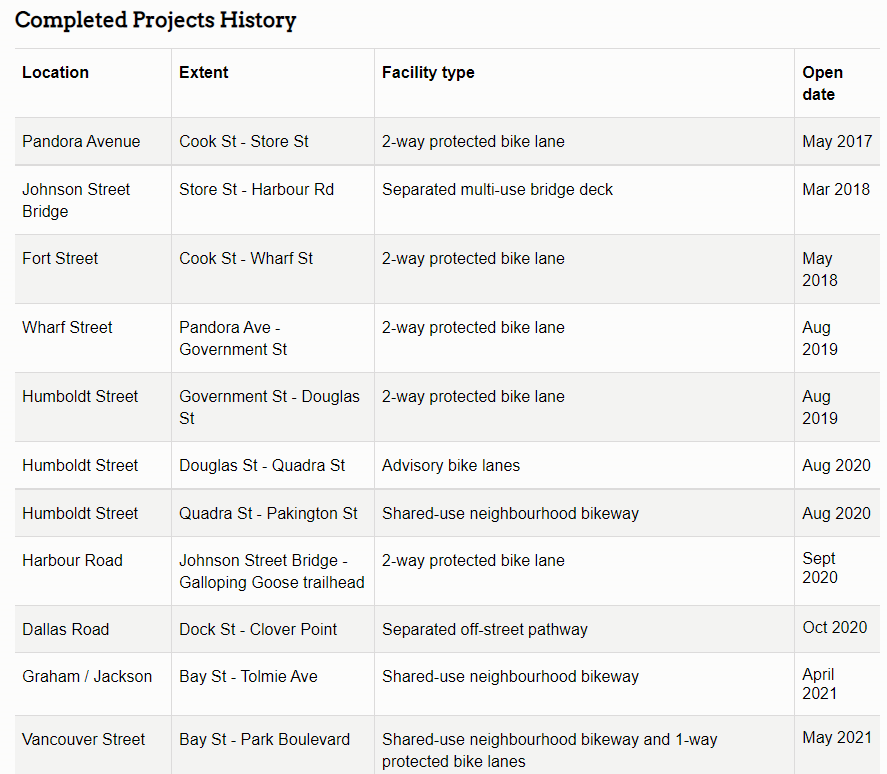I wanted to use this reflection to discuss something I have been thinking about a lot and how technology can be used with regards to it.
For my inquiry project for the field visit class, I presented ways that teachers can make their classrooms more friendly to students with ADHD by applying certain strategies, such as providing movement breaks and crystal-clear instructions.
I was truly blown away with the reception I got from students, and specifically with a couple of students who had ADHD themselves. They seemed to really resonate with the presentation and chose to interview me afterwards. This experience taught me that disclosing my own ADHD and the challenges I have experienced can be quite helpful in a classroom context.
Given this, I wanted to think about a few good tools that can be drawn upon to help students. These are technology tools that I would find helpful and I think others would as well.
- Google docs to make lists. What if teachers took extra time to really break down assignments into their components? Add little check boxes next to them? Could coordinate with students to make sure that they follow and are doing them? This would be immensely helpful.
- Text-to-speech programs. Voice Dream will read text from many sources, including Microsoft Word and PDF files to webpages. It allows you to pause, rewind an fast forward, which is very cool.
- Notability – This looks like great notetaking software. What’s particularly cool about it is that it allows you to record a lecture while you’re taking notes, and then you can go back and listen to certain sections of the recording just by touching certain notes that yo took.



